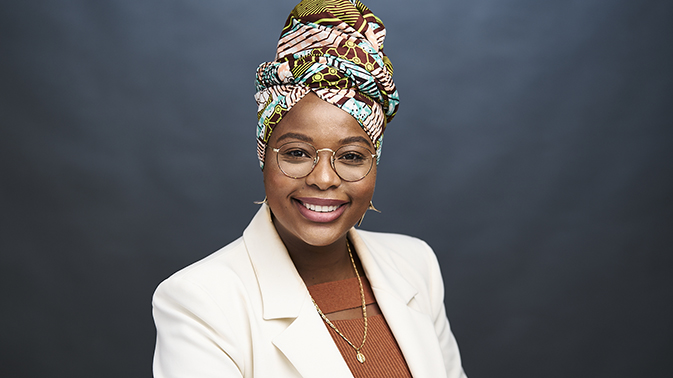When Sophie Gustin ’25 started her community engagement at Cayuga Medical Center’s inpatient mental health unit, she simply hoped to explore a potential career in healthcare. But while playing bingo with patients and offering a listening ear, she noticed a troubling pattern: Among those patients, Cornell students returning to their studies after hospitalization with mental health concerns sometimes struggled to reintegrate into the university’s demanding academic environment.

Sophie Gustin ’25
“They expressed fear and anxiety surrounding their transitions back to campus,” Gustin, a biology and society major in the College of Agriculture and Life Sciences, recalled. At the same time, “I was particularly struck by the camaraderie between patients, despite many coming from vastly different backgrounds.” Determined to help, she created the Higher Education Reintegration Program (HRP) — a peer-support initiative that is now helping students readjust to campus life and avoid repeat hospitalizations.
Gustin’s dedicated work has earned her this year’s Maribel Garcia Community Spirit Award, given annually by the Einhorn Center for Community Engagement to a Cornell student who makes a remarkable, creative and specific contribution to the spirit of humanity.
She launched the program in the fall of 2024, with enthusiastic support from Maureen Coats, a team leader and recreation therapist with Cayuga Medical Center’s Behavioral Services Unit (BSU). Gustin recruited six fellow Cornell students — also serving in the BSU — and, with Coats’s help, carefully designed the program and training to meet institutional confidentiality and privacy requirements.
The peer mentors take turns co-leading weekly support group meetings on campus, offering a familiar face to students they had also worked with at the hospital. “By extending pre-existing relationships from one setting to campus, we help students feel more comfortable,” one HRP member explained. “Inpatient treatment health is often stigmatized, but we all understand what the hospital is like and what students might be feeling when they come back.”
Though HRP is still in its early stages, the program has already shown promising results. Eight students have chosen to participate since its launch. “Feedback has been overwhelmingly positive,” Gustin said. Another team member, for example, recently shared a student’s reflection on the group’s impact. “They said that having even just a few moments where they realized there are others out there who have gone through similar things — where they felt seen, even briefly — had really stuck with them,” the student said. “They were grateful for the support they received at the BSU and that HRP gave them a current sense that they’re not alone. I thought it was a special reminder of the impact this space is having.” None of the participants have been rehospitalized for mental health reasons.
Coats also praised Gustin’s initiative. “For years, Cornell students built meaningful rapport with our patients, but until now, no bridge for support existed once they returned to campus,” she said. “Sophie identified this gap and developed a peer support program that has excited both patients and professionals. It has been a pure delight to work with Sophie — her passion for helping is truly inspiring.”
Looking ahead, Gustin hopes to expand the program beyond Cornell, bringing its benefits to other educational institutions in the region, such as Ithaca College and Tompkins Cortland Community College.
Her experience with HRP has also shaped her personal ambitions. In addition to leading the program, Gustin serves as an EMT with the Nanuet Community Ambulance Corps and as a crisis counselor with the Crisis Text Line — a reflection of her broader commitment to helping others. After graduating, she plans to pursue a career in medicine and biomedical research, with a focus on improving treatment strategies for psychiatric conditions.
“I hope to further explore the role that peer-based support plays in promoting mental health recovery,” Gustin said. “Being recognized with the Maribel Garcia Community Spirit award has inspired me to expand upon the work we’ve started with HRP and push for systemic changes to enhance outcomes for individuals facing mental health challenges.”
The award was established in memory of Maribel Garcia ’95, who died in a car accident in 1997. Her friends seek to honor her legacy of inspired, passionate community engagement. Previous recipients have been recognized for creating cooking classes for underserved children, promoting conservation in Central Africa, working with student military veterans and many other creative projects.




